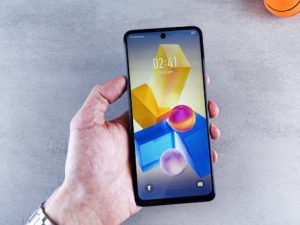Psychological State Monitoring Wearables: Emotional Intelligence Tracking Personal Devices
Advances in technology have revolutionized the healthcare industry, allowing for greater accuracy and efficiency in the monitoring of physical health. However, until recently, mental health has largely been neglected in terms of technological advancement. With the growing recognition of the importance of mental health, there has been a surge in the development of wearables that monitor psychological states and provide personalized insights. One such type of wearable is the psychological state monitoring wearable, also known as emotion tracking personal devices. These devices go beyond simply tracking physical activity and sleep patterns; they provide invaluable insights into one’s emotional intelligence and mental well-being. In this article, we will delve into the world of psychological state monitoring wearables and explore their role in promoting emotional intelligence and mental health.
What are Psychological State Monitoring Wearables?
A psychological state monitoring wearable is a personal device that uses sensors to track physiological indicators associated with emotions, such as heart rate, skin conductivity, and body temperature. It then uses this data to provide personalized insights into a person’s emotional state. These wearables come in various forms, from wristbands and headbands to shirts and patches, making them easily accessible and comfortable to wear.
How do they work?
The sensors in psychological state monitoring wearables track physiological signals that are known to be indicative of different emotional states. For example, a faster heart rate and increased skin conductivity are often associated with stress and anxiety, while a slower heart rate and lower skin conductivity may indicate a sense of calmness and relaxation. These wearables continuously monitor these signals and use algorithms to interpret the data and provide real-time information about a person’s emotional state.
The Importance of Emotional Intelligence Tracking
Emotional intelligence, also known as EQ, refers to a person’s ability to manage and understand their own emotions, as well as the emotions of others. It encompasses skills such as self-awareness, self-regulation, motivation, empathy, and social skills. EQ plays a crucial role in our well-being, relationships, and overall success in life. However, it can be challenging to accurately gauge one’s own EQ, making it a difficult skill to improve upon. This is where psychological state monitoring wearables come in.
Accurate and Objective Insights
Psychological state monitoring wearables provide a non-intrusive and objective way to measure emotional intelligence. By continuously tracking physiological indicators, these devices can provide accurate insights into a person’s emotional state, eliminating the potential bias that may come with self-assessment. This allows individuals to gain a better understanding of their emotional tendencies and improve upon areas that may be lacking.
Real-Time Feedback
One of the most significant advantages of psychological state monitoring wearables is their ability to provide real-time feedback. With instant insights into one’s emotional state, individuals can better regulate their emotions and make necessary adjustments to improve their well-being. Wearables can also provide timely reminders to practice techniques such as deep breathing or mindfulness to help manage stress and improve overall emotional intelligence.
Promoting Mental Health
Beyond just tracking emotional intelligence, psychological state monitoring wearables also play a crucial role in promoting mental health. By providing individuals with a deeper understanding of their emotional state, these devices can help identify underlying issues such as chronic stress, anxiety, or depression. With this information, individuals can seek appropriate support and make changes to improve their mental well-being.
The Future of Psychological State Monitoring Wearables
The use of psychological state monitoring wearables is still in its early stages, with new advancements and developments being made each day. As technology continues to evolve, we can expect to see even more sophisticated wearables that can track a broader range of emotional indicators. Furthermore, as data collection and interpretation techniques improve, these wearables will become more accurate and personalized, providing even greater insights into our emotional well-being.
Wide Range of Applications
Besides personal use, psychological state monitoring wearables also have the potential for various applications in the healthcare industry. Healthcare professionals can use this data to make more accurate diagnoses and tailor treatment plans for individuals with mental health conditions. These wearables can also be utilized in workplace wellness programs to monitor and improve the emotional intelligence of employees, ultimately resulting in a more positive and productive work environment.
Privacy and Ethical Concerns
As with any new technology, there are also concerns surrounding the privacy and ethical implications of psychological state monitoring wearables. As these devices collect sensitive data, it is essential to establish clear regulations and guidelines on its use and storage. Additionally, ethical concerns regarding the interpretation and use of this data must also be addressed to ensure the well-being of the individuals using these wearables.
In conclusion, psychological state monitoring wearables hold immense potential in promoting emotional intelligence, improving mental health, and advancing the healthcare industry. With continued technological advancements and careful consideration of privacy and ethics, these devices have the power to revolutionize the way we understand and manage our emotional well-being.











